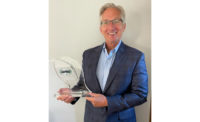ASA Vice President of Advocacy Jim Kendzel has been appointed to chair the IAPMO Alternate Water Source Task Group.
The scope of this task group is to research technologies and develop provisions for onsite treatment for storm water and blackwater catchment systems for nonpotable and potable reuse, and the appropriate disinfection and testing requirements for these systems according to the end use. Additionally, definitions for different types of alternate water sources need to be distinguished for better understanding across the industry, Kendzel noted.
In addition to chairing the Alternate Water Source Task Group, Kendzel also will be serving as a voting member of the Premise Water Supply System Design Task Group and the Water Efficiency and Conservation Task Group. The focus areas for these two groups include:
• Investigation of premise plumbing water supply system design provisions that would result in improved water quality and water and/or energy-efficiency performance;
• Minimizing pipe sizes and lengths;
• Strategically locating fixtures and appliances near each other and to the water heater;
• Piping strategies to prevent or minimize stagnation;
• Velocity minimums and maximums for water-quality control, and technologies for leak detection devices; and
• Efficiency performance for different kinds of water heaters and water-heating control strategies
The resulting recommendations will be considered for inclusion into the 2020 publication of the IAPMO Water Efficiency and Sanitation Standard (WE•Stand). WE•Stand was published in November, 2017 as an American National Standard, replacing the Green Plumbing and Mechanical Code Supplement. WE•Stand is noteworthy, as it is the first-ever ANSI standard that focuses solely on achieving safe and efficient water use in both residential and non-residential buildings, ASA pointed out.
“ASA is committed to being actively engaged in the development of codes and standards impacting our members and the plumbing industry,” ASA CEO Mike Adelizzi said. “As systems become more efficient and new and creative ways are developed to re-use our valuable water resources, it is critical that we develop standards that ensure the systems perform, do not have a negative impact on other components of the system and ultimately continue to protect public health and safety. We are pleased to have Jim represent ASA and serve in a leadership role in these important projects.”



